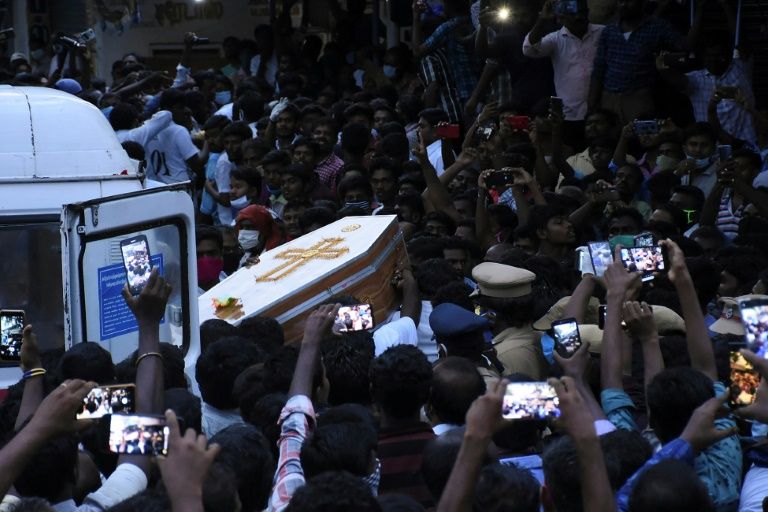‘George Floyds of India’: outrage mounts over police custody deaths
()
Their case has thrown a new spotlight on police brutality just weeks after the killing of Floyd, an African-American man, by a white police officer in the US led to worldwide protests.
J. Jayaraj, 58, and Bennicks Immanuel, 31, were arrested on June 19 and accused of keeping their store open past permitted hours in the southern state of Tamil Nadu, which has reimposed a lockdown to curb the spread of coronavirus.
They died in hospital a few days later, officials said, with their family alleging in written complaints that they were severely abused by police and had suffered rectal bleeding.
Two policemen involved in the alleged torture were suspended, the state’s Chief Minister Edappadi Palaniswami said.
He added Sunday that the case would be transferred to federal agency the Central Bureau of Investigation, pending the approval of the Madras High Court.
The deaths in the small town of Sathankulam triggered a protest last week and shopkeepers across Tamil Nadu staged a strike on Wednesday.
“Reeling from what I’m hearing. Absolutely stunned, sad and angry… the guilty must not be allowed to go unpunished,” tweeted Bollywood star Priyanka Chopra Jonas on Saturday.
“Let’s demand for the same justice we did for George Floyd,” said actress Krystle D’Souza.
State politician, social activist and lawyer Jignesh Mevani wrote that the “George Floyds of India are far too many”.
“Will Indians march on streets in thousands like in America?” he tweeted.
Rahul Gandhi, a leader of the opposition Congress party, described it as a “tragedy when our protectors turn into oppressors”.
Several reports by human rights groups in India have detailed cases of alleged torture of suspects in custody, with deaths often blamed by police on suicide or natural causes.
According to the National Human Rights Commission, 3,146 people died in police and judicial custody in 2017-18.
“Custodial violence and torture is so rampant in India that it has become almost routine,” it said in a report.
“It represents the worst form of excesses by public servants entrusted with the duty of law enforcement.”
Convictions in such cases are extremely rare, according to activists.
Disclaimer: Validity of the above story is for 7 Days from original date of publishing. Source: AFP.


